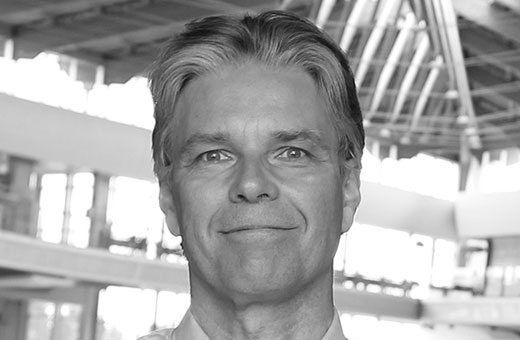Brett Matthews
My Oral Village
Toronto, ON

Sector Impact
Civic Engagement
Economic Development
Education
Human Rights & Equality
Science & Technology
HOW DO YOU BANK WHEN YOU CAN’T READ?
The Challenge: About a billion adults worldwide — two-thirds of whom are women — cannot read or use written numbers. As the global economy becomes increasingly digitized, these folks are increasingly excluded from economic participation, perpetuating and entrenching deep poverty.
The Solution: Brett Matthews develops Oral Information Management (OIM) tools that can be integrated into digital finance platforms, allowing these “oral” adults to develop the skills they need to participate in 21st-century financial life.
Financial independence for “oral” adults
Brett Matthews envisions a world in which Oral Information Management (OIM) democratizes access to banks, ATMs, and digital applications, and where even those who cannot read or recognize written numbers can manage their money and participate in the economy.
Numeric representations of money — think $1,250, €17, ₹24,300 — are the literary currency of the modern economy, necessary for almost any business or financial transaction.
And yet, approximately a billion adults around the world can’t read or write ordinal numbers like these. As we phase out cash and move to an increasingly digital economy — a move accelerated by the Covid-19 pandemic — these people, most of whom are women, risk being sidelined from economic systems and pushed, or pushed further, into poverty.
Brett Matthews is changing that. With My Oral Village (MOVE), he is creating a set of oral information management (OIM) tools that bridge the gap between ordinal literacy and the strategies that “oral” adults have used for millennia to understand cash systems. The result? Adults with no or low literacy or numeracy skills can use digital financial services autonomously, safely, and in real time. They can also build financial literacy, using OIM, for example, to learn to read three-digit numbers or payment transfers on their mobile phones — skills that help to alleviate poverty.
MOVE is just the latest in Brett’s decades-long focus on disrupting the global marketplace with an eye toward equity. As an undergraduate student, he led a campaign calling on Brock University to divest from companies attached to apartheid. In the 1990s, he founded the Ethical Pathways Investment Club, one of the first investment clubs in Toronto with explicitly ethical stock-picking criteria. A career in microfinance and years of research in oral communities across Asia, Africa, and the Pacific gave him a grounding in the root causes of financial exclusion and provided the impetus and data to build a first-of-of its-kind financial numeracy indicator, which he wants to see mainstreamed into the movement for financial inclusion and reflected in the next round of global development goals.
Brett founded MOVE in 2012. To design, test and implement tools and solutions, he’s working with local partners in Cambodia, Bangladesh, India, Timor-Leste, the Solomon Islands, and Tanzania. He’s developing an app in partnership with Hover, a Seattle-based fintech company. He’s engaging telecom companies, graduate programs, banks and remittance firms to show them that OIM can be adopted profitably, with limited risk. And he’s collaborating with the universities of Western Ontario, Waterloo, and Toronto, as well as Centennial College and Alliant University, to catalyze OIM science.
By 2019, more than 5000 people were using MOVE’s tools. Brett’s goal? To see 100 million oral adults acquire the skills they’ll need for full financial inclusion, by the year 2030.
